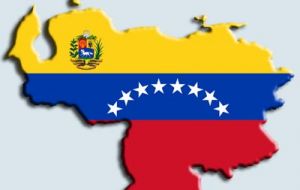MercoPress. South Atlantic News Agency
Venezuela benefited 14 “allies” with 220 billion USD in four years

Venezuela is estimated to have spent 220 billion US dollars from its oil and gas revenue in investments, subsidies and donations to 14 “allied” countries between 2005 and 2009, according to Centro de Investigaciones Economicas, a Caribbean think-tank.
The report from CIECA, which compiled official data from the Venezuelan government and offices, points out to overseas expenditure of 220.5 billion US dollars in the last four years which helped fund investments, government purchases donations and subsidies to countries such as Russia, Cuba, Bolivia and Argentina.
Among the countries which most benefited is Russia with 34.5 billion US dollars with sales of arms and energy agreements, followed by Cuba with 24.7 billion US dollars that include everything from providing a new electricity grid for the capital Havana to a daily supply of 90.000 barrels of crude.
According to the CIECA report oil is paid with services, food or other produce. With Cuba for example low consumption bulbs plus medical and education services provided by thousands of Cuban para-medics and teachers working in slums of Caracas.
Another way of helping the “right” friends is the purchase of foreign debt bonds, in this case from Argentina to the tune of 5 billion US dollars, which is considered together with those from Ukraine as the “most risky” of the world.
However the Venezuelan government immediately sold the Kirchner bonds in the Venezuelan private market with an interesting profit.
Other donations include hospitals and schools for Uruguay and Guatemala; garbage trucks for Haiti and farm tractors for Honduras.
The CIECA report is supported by data from Venezuelan government owned oil corporation, PDVSA, which revealed that during the third quarter of last year the oil rich country had 689.000 barrels per day committed to support programs signed with countries in the Caribbean, Central America and South America. These programs are based on 25 year payments largely at symbolic interest rates.
CIECA is described as a private non-profit institution dedicated to economic, political, and social research in the Dominican Republic, the Caribbean, and in Central America.




Top Comments
Disclaimer & comment rulesCommenting for this story is now closed.
If you have a Facebook account, become a fan and comment on our Facebook Page!